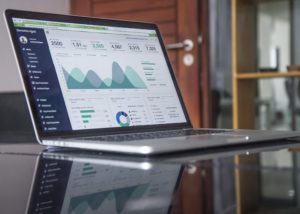As uncertainty builds over the state of the world economy, experts are now advocating for a variety of measures to help promote stability in one’s own finances. One such recommendation is to consider owning gold. To better understand this concept, we reviewed resources from U.S. Money Reserve, a well-known distributor of gold coins. The insights from the company provide a nice overview of the reasons you may want to purchase the precious metal for yourself.
Lingering Effects
For many, the 2008 financial crisis fundamentally changed their understanding of the stability of global assets. Many areas of the economy that had previously seemed rock solid underwent drastic downturns, with some effects still being felt to this day. One need look no further than the drop in the housing market to see how much that downturn affected the lives and livelihoods of many individuals. In the wake of those effects, confidence in many markets has been slow to return, and many experts are wary of another major downturn in the not-too-distant future.
However, contrary to other commodities, which had downturns in many other areas, gold was one asset that performed relatively well during the 2008 financial crisis. In fact, those who purchased the precious metal in 2007, right before the economic collapse, realized an increase of 100 percent by 2012. That increase can be partly attributed to the metal’s traditional status as a safe-haven asset. At many times throughout history, as other assets experienced volatility, gold has provided relative stability for many individuals. As fears mount over another recession on the horizon, many are once again turning to the asset to help protect their wealth.
Trade Concerns
Another issue contributing to concerns over economic stability is the ongoing trade conflict between the U.S. and China. With an outcry of unfair trade practices on both sides, each country has begun raising tariffs on a number of goods supplied [K1] by the other. So far, the U.S. has raised tariffs on more than $250 billion worth of Chinese goods, and China has responded in kind. This back-and-forth of mounting trade tensions between the world’s two largest economies has provoked concern of an international ripple effect, especially in light of the role that both countries play in supplying and consuming manufactured goods.
The trade actions between these two countries show no sign of diminishing anytime soon[K2], which has become another issue contributing to uncertainty in financial markets. In the face of this uncertainty, many experts are again looking to traditionally stable assets to help weather the volatility that may be on the horizon. After all, gold’s historical record shows that it often maintains or even increases its price when financial markets are undergoing times of instability.
Planning for Retirement
According to sources from U.S. Money Reserve, concerns over volatility in markets have played a role in another important area of modern life—retirement planning. Many Americans contribute to retirement accounts with the intention of relying on those accounts to live comfortably as they enter into retirement. However, since these accounts are often largely dependent on market factors, retirement plans are not immune to fluctuations in the economy at large. One need look no further than the devastating effects that the 2008 financial crisis had on the retirement plans of many. At that time, nearly $2 trillion in assets was lost in just 15 months.
Once again, this concern is tied to the way that many people are purchasing gold. While economic instability can be detrimental to any type of wealth, it can be exceptionally devastating when someone is relying on those assets for retirement. For that reason, many people find the stability that can come with owning gold to be an important part of their retirement strategy. This is so often the case that individuals may set up a gold IRA, which allows people to enjoy the benefits of holding physical gold in an IRA account.
Natural Disaster
Scientists have long warned of the impending threat of climate change and how it can negatively affect our environment. As global temperatures continue to rise, many parts of the world are now starting to witness those effects firsthand in the form of natural disasters. As the U.S. has seen time and again, these events can have a devastating effect on the economy. For instance, the 2005 Hurricane Katrina tragedy cost an estimated $108 billion and caused untold additional damages to property, businesses, and the tourism industry.
In the face of an anticipated increase in climate-related events, many individuals are seeking out assets that can help hedge against the possibility of natural disasters. Again, because of its traditional role as a safe-haven asset, gold provides this protection for many. This is just one more way that the precious metal is showing its stability in times of upheaval.
As uncertainty builds around various issues in the global economy, many concerned individuals are turning to gold as a hedge against volatility. With this information from U.S. Money Reserve, we can see just how present these concerns are in everyday life. Those concerned about these issues may want to consider purchasing gold as a part of their wealth protection strategy.
About the Company
U.S. Money Reserve is a leading supplier of government-issued gold coins. The company is known for its team of well-regarded Account Executives, who have helped it earn an AAA rating from the Business Consumer Alliance. Much of this success can be traced to the guiding influence of the company’s president, Philip N. Diehl, former director of the U.S. Mint. With his unique insights into both personal financial freedom and public policy, he has helped the company rise to the needs of individuals seeking the stability of gold for their personal holdings.
Follow U.S. Money Reserve on Medium




